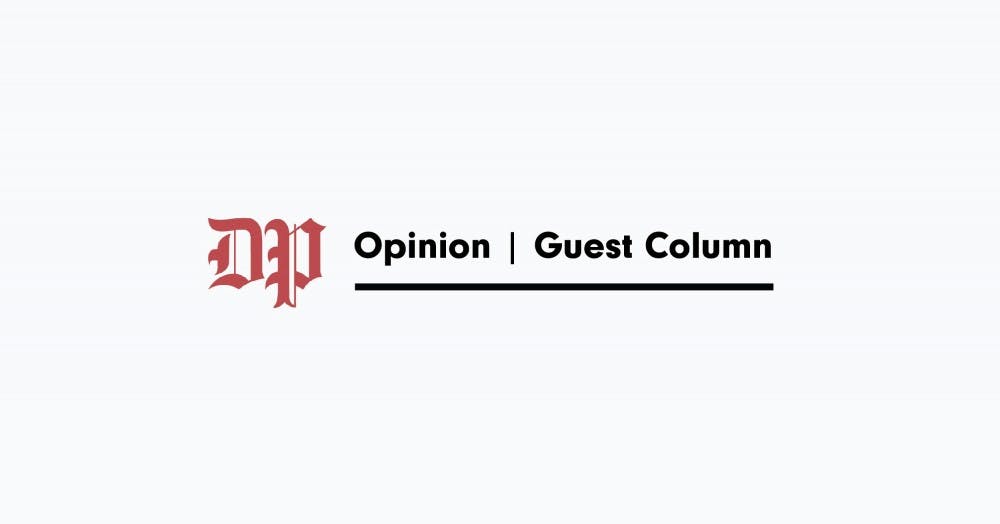During his campaign, Trump made a statement that all Muslims should be banned from entering the United States. In December 2015, a group of Penn graduate students, including myself, were appalled by the lack of public condemnation about such Islamophobic discourse. As a response, we created a petition condemning these statements and asked Penn President Amy Gutmann to also publicly denounce Islamophobia. Of course, this never came to pass.
Her silence echoed an earlier moment of silence following the Associated Press report about a New York City Police Department surveillance program that targeted Muslim Student Associations at colleges in New York, New Jersey and Pennsylvania, including our own at Penn. Naturally, many students in the MSA were upset to find out that a police department, with no jurisdiction over Philadelphia, had been watching their activities. Unsurprisingly the NYPD program never found evidence of any wrongdoing. One might think that the administration would find it within their purview to make some kind of remark about this infringement of their students’ civil rights. And yet Gutmann never made any public statement of condemnation.
And so when she made a statement on Monday "regarding immigration," I was intrigued. However, when I read Gutmann’s statement about the recent executive order officially titled “Protecting the Nation from Foreign Terrorist Entry into the United States” and unofficially titled “the Muslim ban,” I found that nowhere does she explicitly name the population that is primarily targeted by this, Muslims or refugees. More on this in a moment.
Just to review, on Jan. 27, Trump signed an executive order, which indefinitely bans all Syrian refugees from entering the United States, suspends all refugee admissions for 120 days and blocks citizens of seven Muslim-majority countries, refugees or otherwise, from entering the United States for 90 days: Iran, Iraq, Libya, Somalia, Sudan, Syria and Yemen. Five of these countries have been bombed by the United States in 2015, undoubtedly contributing to the massive instability experienced by civilians through the region.
However, Trump justified this executive order as a way “to keep radical Islamic terrorists out of the United States of America.” In this justification, Trump essentially creates a direct link between the thousands of majority-Muslim people with legal visas that are living, working, raising children in the United States, and the terrorists. Additionally, the very people fleeing these terrorists, and U.S. bombings, are now banned from the United States for at least 120 days, if not more.
In fact, some of those affected by this ban are not from these seven countries, but they are Muslim. Mohammad Abu Khadra, a 16-year-old Jordanian who attend Katy High School in Houston, traveled to Jordan to renew his visa. When he flew back on Saturday, his visa was cancelled and he was detained him at the airport for about 72 hours before being transferred to a detention center in Chicago on Monday. He currently has no access to a cell phone. As The Atlantic explains, if the ban does not exclude all Muslim immigrants, it is not "neutral." If there was a ban against some Jews but not others, or some women but not others, the policy is no less discriminatory towards a particular group. “Discrimination does not disappear simply because it is partial.”
Then why would Gutmann not say as much? If the architects of this executive order are Islamophobic, if the primary affectees are mostly Muslim and refugees, if the policy is essentially following through on a campaign promise that was originally described as a ban on all Muslims, why frame her comments as solely an immigration issue that somehow does not have a specific focus?
In her statement, she does the impressive task of not making one mention of Muslims or refugees, literally the week after people turned out in the thousands across 90 airports across the United States to spontaneously protest the — and it must be said — Muslim ban.
When the other side is so explicitly anti-Muslim and anti-Muslim refugee, I'm seriously perplexed as to why her statement is implicitly discussing the issue. If anything, anyone condemning this ban must be explicit about supporting Muslims and refugees and not implicitly condoning Islamophobia through such watered-down statements. Moreover, the fact that she discusses her own Jewish heritage is also surprising, given the lack of identifying Muslim students and families, some at Penn, that were impacted by this discriminatory policy.
It makes me think of how disappointing it was when the White House released a statement on Friday for Holocaust Remembrance Day that didn’t explicitly identify Jews as the primary victims of the tragedy. For all these reasons, it's ironic that Gutmann’s statement does not identify "Muslims" or “refugees” as the primary people affected by this policy.
MARIAM DURRANI is a Penn Ph.D. graduate with a joint degree in educational linguistics and anthropology. She is currently a postdoctoral fellow at Harvard's Graduate School of Education.
The Daily Pennsylvanian is an independent, student-run newspaper. Please consider making a donation to support the coverage that shapes the University. Your generosity ensures a future of strong journalism at Penn.
Donate




